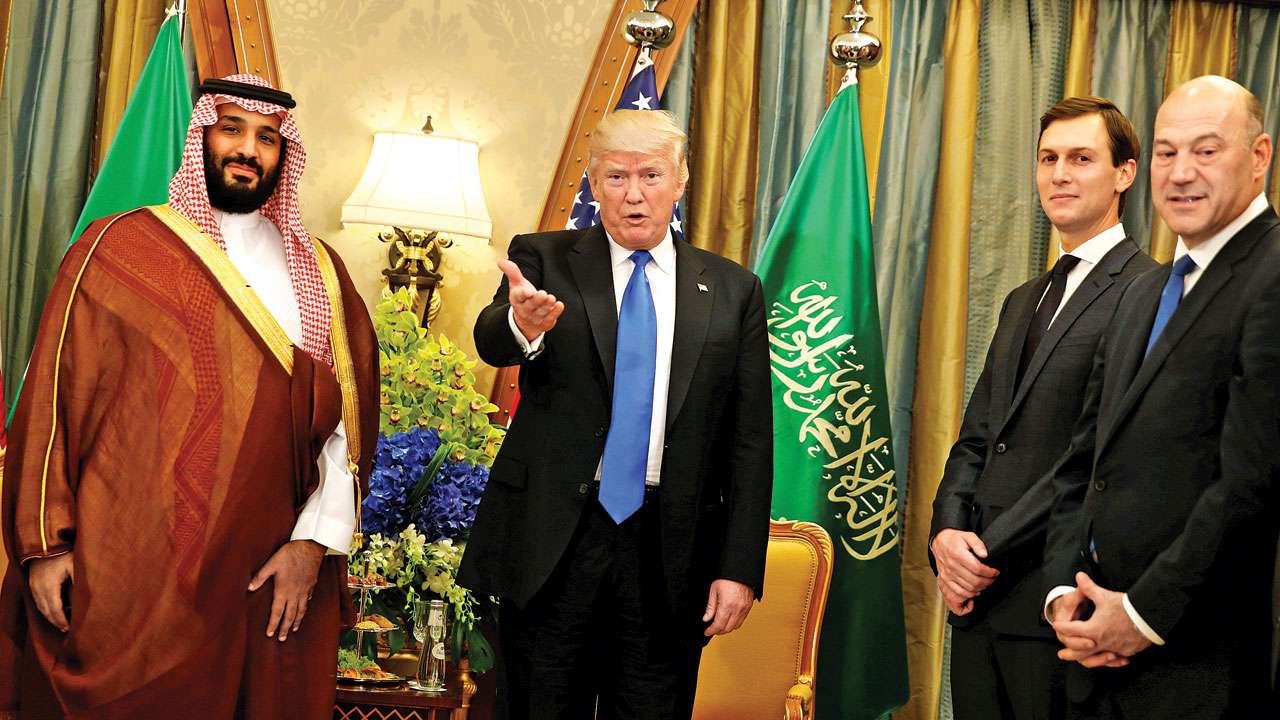
There have been times in history when a single incident had triggered a chain of events, which led to catastrophic results for the international security situation. It was something that could not have been ordinarily visualised at the time of occurrence. The assassination of Archduke Franz Ferdinand, heir presumptive to the Austro-Hungarian throne, and his wife on 28 June 1914, in Sarajevo, is a wonderful example. It led to the First World War which paralysed much of the world for four years and resulted in approximately 15 to 19 million deaths of civilian and military personnel. This is not to say that the murder of Jamal Ahmad Khashoggi at the consulate of Saudi Arabia in Istanbul on 2 October 2018, can be deemed as a parallel to an event that triggered World War I; nor is it implied that in 2018 the world is heading anywhere near a world war. Yet seldom in recent history has an event unrelated to global politics had an impact which can drastically change the strategic environment of a crucial region of the world, as the killing of Jamal Khashoggi. The gruesome murder and dismemberment of the body of the veteran US-based Saudi journalist just a few weeks ago, at the Saudi consulate, purportedly on the orders of Crown Prince Mohammed bin Salman (MbS), is by now too well known to recount here.
At the core of the issue is the US attempt to create an order in the Middle East which could suitably empower a reasonably reformed Saudi Arabia under its heir apparent, MbS. The move was aimed at countering the perceived growing power of an allegedly rogue Iran. Iran’s dominance of the Levant, achieved largely with the help of Russia, the Lebanese militant group Hezbollah and the Bashar Assad regime of Syria has already altered the balance of power in the Middle East. The proverbial Shia crescent extending into this sub region militates against the interests of Israel, the staunchest US ally. Equally, it directly impinges on Saudi interests especially its status in the sectarian conflict between Shia and Sunni Islam in which Saudi Arabia is at the core centre of Sunni interests. With President Trump’s known stance against Iran and avowed efforts at bringing a regime change in that country, he set up the mechanism for a greater US-Israeli-Saudi strategic equation to offset Russian and Iranian gains from the Syrian Civil War.
With the hand of MbS now reasonably suspect in ordering the killing of Jamal Khashoggi, equations appear getting upset. It all commenced with MbS displaying what analysts suspected were his true colours which are far from the professed reputation of being an ardent reformist in the maze of Middle Eastern authoritarianism. It’s not as if the US has not supported non democratic forces in the past but its investment in MbS and creation of a new Saudi Arabia was huge. So how does a single murder of a journalist upset the US applecart?
As an ardent supporter of rights and stability, the US has always attempted to project the need for a rule-based order. The focus immediately comes on the almost single point investment of US policy in MbS to play the right cards in the messy game of Middle Eastern politics. Yet even the US, despite many instances of a murky past, cannot easily morally justify its position by continuing with this partnership. There are other instances of MbS’ alleged impulsive attitude: the fruitless war in Yemen which has created vast suffering of civilians; or the Qatar blockade which has diverted attention from the strategy of containing Iran; and the severing of relations with Canada over a tweet criticising Saudi detentions of human rights activists.
President Trump has vainly held on and desisted from direct condemnation of the Prince which would strain relations. He has personal business stakes in Saudi Arabia it is said. However, more importantly it is US business interests which are also at stake. The agreement to sell $110 billion worth of weapons was a big achievement being projected by Trump. This could be well be under threat with a new political equation in the US legislature now in place. In fact, justification of holding MbS hand for the sake of pursuing strategic interests would become a contentious affair against collective American conscience. A continuation of the relationship with MbS could hurt Trump electorally as there is greater progress in the investigation. The CIA itself appears to be sufficiently convinced to take a public position on the issue sparking what could be one more internal squabble in the US to the detriment of the Administration.
If the US attempts to force King Salman, the Saudi monarch, to alter the planned succession it would firstly undo a crucial two years of strategic investment and weaken the US hold over the Middle East. The weakening of the US-Israeli-Saudi equation is to Iran’s interest and advantage but it would bring in greater unpredictability in Israel’s stance leading to even greater instability. The ‘Deal of the Century’ that Trump is contemplating about the Israel-Palestine issue would be a non-starter in such a case.
The killing of Khashoggi is unlikely to peter out. The ‘Murder on the Bosporus’ has yet to see the emergence of many other hidden linkages which could upset even more equations.
Author is former GOC of Chinar Corps, Srinagar